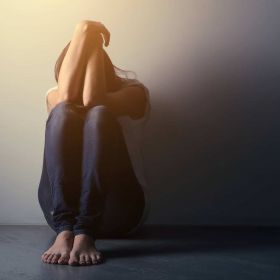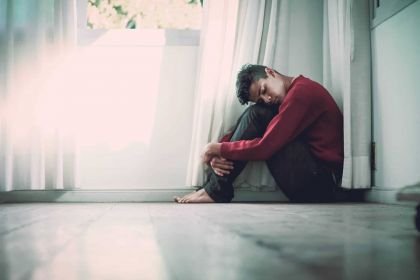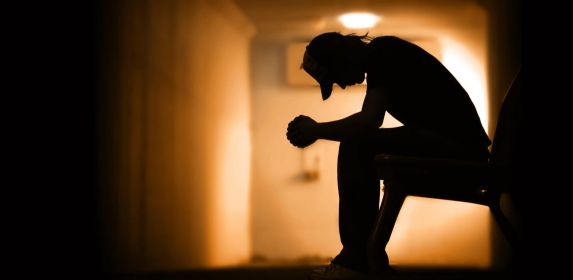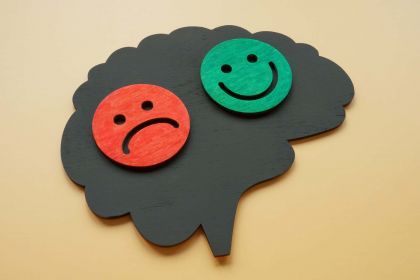Dual Diagnosis Treatment Center in Los Angeles for Co-Occurring Disorders
Dual Diagnosis Disorder Treatment Near Me
Struggling with both mental health challenges and substance use issues can feel overwhelming, but there’s hope in finding the right support. At Harmony Place, we specialize in dual diagnosis treatment, addressing the unique needs of individuals facing co-occurring disorders. Located in Woodland Hills, our center provides a safe, supportive environment where you can begin your recovery with a team of compassionate professionals devoted to your well-being. By treating both conditions simultaneously, we help uncover the root causes of these struggles, creating a clear path toward healing and long-term success. If you’re searching for comprehensive dual diagnosis treatment centers in Los Angeles, Harmony Place offers care designed specifically for you.
Dual diagnosis treatment is about more than just addressing symptoms—it’s about treating the whole person. That’s why Harmony Place incorporates evidence-based therapies, personalized treatment plans, and a compassionate approach to restore balance in your life. Whether you’re seeking outpatient dual diagnosis treatment near you or need a residential option, we ensure every aspect of your care is customized to support your recovery goals. With expertise in conditions such as anxiety, depression, bipolar disorder, and schizophrenia paired with substance use dependency, we’re one of the leading dual diagnosis treatment centers in California. You don’t have to face this alone; Harmony Place is here to help you build a foundation for a brighter future.
Studies show that more than 50% of mental health disorders arise from drug and alcohol addiction conditions. Hence, it is only proper for mental health treatment centers to address co-occurring mental health disorders. At Harmony Place, we offer dual diagnosis treatment in Los Angeles, California.
Treating both mental health and substance use disorders is known as dual diagnosis treatment, or co-occurring disorder treatment. Harmony Place provides an individualized treatment program for you, whether you’ve already been diagnosed with a mental health disorder or you discover one while here with us.
By receiving an accurate diagnosis and treating the co-occurring disorders together, our dual diagnosis treatment center can assist with our patients’ long-lasting recovery. For more information about our dual diagnosis treatment in Los Angeles contact our admissions team today.

What Are Dual Diagnosis Disorders?
Dual diagnosis is another common term for co-occurring mental health and substance use disorders. Many people turn to drugs or alcohol to cope with their mental health symptoms leading to further issues. For instance, a person experiencing alcohol abuse can also experience depression.
According to MedlinePlus, “About half of people who have a mental disorder will also have a substance use disorder at some point in their lives and vice versa.” The two most common groups of mental conditions that co-occur with substance abuse are anxiety and depression.
The patients at our dual diagnosis treatment center in Los Angeles receive an integrated treatment that focuses on addiction and mental health disorders by working directly with our clinical team. By placing a client with a dual-diagnosis disorder in an environment with experienced doctors, therapists, and staff, we are able get to identify and treat the client’s actions, emotions, and behaviors that led to addiction.

Book a Free Assessment
Common Mental Health Disorders Treated at Dual Diagnosis Centers in LA
Here are the most common co-occurring mental health issues that we treat at our dual-diagnosis treatment facility in Los Angeles:
Mood Disorders
Mood disorders include disorders like major depressive disorder, bipolar disorder, and seasonal affective disorder. Mood disorders, also known as affective disorders, are a category of mental health conditions that can cause severe emotional symptoms. For example, bipolar disorder will cause someone to have waves of extreme emotions that differ dramatically.
These conditions can disrupt people’s ability to function in their daily lives and may lead to substance abuse and other risky behaviors. Dual-diagnosis treatment usually includes medication-assisted treatment and psychotherapy. Don’t wait to get help. Explore leading bipolar treatment centers in California by contacting Harmony Place today.
Anxiety Disorders
Anxiety disorders include generalized anxiety disorder, social anxiety, post-traumatic stress disorder (PTSD), obsessive-compulsive disorder (OCD), panic disorder, and phobias. Anxiety disorders can cause severe emotional distress. Anxiety can be caused by various factors, including genetics, brain chemistry, and life events. People with anxiety may experience symptoms such as feelings of panic, fear, and apprehension, which can interfere with everyday activities such as work, school, and relationships.
One study reported the lifetime prevalence of co-occurring addiction and generalized anxiety disorder in about half of the individuals who develop GAD.
Our dual-diagnosis treatment includes anxiety treatment in Los Angeles which typically includes medication management, therapy, or a combination of both. In some cases, anxiety disorders may be caused by other mental illnesses, such as depression. Harmony Place is here to help—reach out today if you’re seeking anxiety treatment centers in Los Angeles or PTSD treatment in Los Angeles for yourself or a loved one.
Personality Disorders
Borderline personality disorder, narcissistic personality disorder, antisocial personality disorder, and many more are included in the list of personality disorders. Personality disorders are types of mental illnesses characterized by psychiatric issues, such as distorted patterns of thinking, feeling, and behavior. These disorders manifest as maladaptive behaviors or difficulties relating to others. They can affect people of any age, race, gender, or socioeconomic status.
Common symptoms of personality disorders include emotional instability, social withdrawal, paranoia, and inflexibility. Overall, personality disorders are serious conditions that require specialized treatment to manage their symptoms effectively in the long-term. Looking for trusted dual diagnosis treatment center in Los Angeles? Call Harmony Place today to begin the journey to recovery.
Impulse Control Disorders
ADHD and compulsive sexual behavior are examples of impulse control disorders. Impulse control disorders are a group of mental health issues that cause people to have difficulty controlling their impulses. While everyone has occasional impulsive thoughts or behaviors, people with impulse control disorders have difficulty resisting acting on these impulses. As a result, they may engage in harmful or risky behaviors, even when they know the consequences could be negative.
Impulse control disorders can be caused by various factors, including genetic predisposition, brain chemistry, and environmental stressors. Anyone struggling with a co-occurring impulse control disorder and substance use disorder should seek dual diagnosis rehab in California to receive the appropriate treatment and resources needed for recovery.
Psychotic Disorders
These disorders include schizophrenia, schizoaffective disorder, and dissociative disorders (DID, depersonalization). Psychotic disorders are types of mental health issues that can cause people to see, hear, or believe things that aren’t real. These disorders can make it difficult for people to think clearly, manage their emotions, relate to others, and function in day-to-day life.
Dual-diagnosis treatment centers can help people suffering from co-occurring addiction and psychotic disorders by providing them with medication, therapy, and other support services. Because mental health and addiction treatment are not one size fits all, treatment approaches are always highly individualized to address the co-occurring issues simultaneously. Sometimes, hospitalization may be necessary to treat people with co-occurring substance use and psychotic disorders. This is to ensure the safety of individuals suffering from addiction and psychotic disorders and those around them.
With the proper treatment, many people with co-occurring addiction and psychotic disorders can successfully recover once they receive dual diagnosis support.
Dual Diagnosis Treatment for Mental Health and Substance Addiction in Los Angeles, CA
At Harmony Place, we are dedicated to offering compassionate dual-diagnosis treatment programs tailored to each patient’s unique needs. Whether you’re seeking inpatient or outpatient care, our goal is to provide a supportive and empowering environment that fosters recovery and well-being.
Our residential inpatient dual diagnosis treatment center offers 24/7 care for individuals grappling with severe addiction and mental health challenges. Here, patients receive personalized treatment plans crafted by a team of experienced doctors, nurses, counselors, and therapists. This integrated approach ensures that every aspect of your health is addressed with the utmost care and professionalism.
For those who prefer flexibility, our outpatient treatment for dual diagnosis in Los Angeles allows patients to participate in regular therapy sessions and counseling appointments while living at home or in supportive housing. This option is ideal for individuals with a strong external support network. However, if mental health concerns are more complex, an inpatient program may be more beneficial to ensure comprehensive care.
Our dual diagnosis treatment center in Los Angeles offers programs that can extend beyond 30 days, depending on individual needs. Understanding the right type of treatment program is crucial for effectively addressing co-occurring disorders. To begin your journey to recovery, contact our admissions team today. We will conduct an over-the-phone assessment to tailor a treatment plan that fits your specific circumstances.
For more information, reach out to us to explore how our dual diagnosis treatment centers in California can help you achieve lasting recovery and a brighter future.
Inpatient and Outpatient Dual Diagnosis Treatment Near Me
Harmony Place, located at 23041 Hatteras St, Woodland Hills, CA 91367, provides a welcoming environment for individuals seeking support for co-occurring disorders. This serene facility is situated in a quiet neighborhood of Woodland Hills, offering both privacy and accessibility. Harmony Place takes a holistic approach to recovery, focusing on the intersection of mental health and substance use challenges. Its thoughtfully designed program combines evidence-based care with compassionate guidance, making it a trusted destination for dual diagnosis residential treatment for those ready to take the first step toward healing.
When searching for inpatient or outpatient dual diagnosis treatment centers near you, it’s important to do a little research to find a program that aligns with your needs. Begin by using search engines to look up terms like “dual diagnosis rehab near me” or “co-occurring treatment centers near me.” This will help you compile a list of potential options. Pay close attention to reviews and testimonials to better understand the experiences of others who’ve sought care. Look for programs that emphasize evidence-based treatment methods, as these are proven to be effective for addressing co-occurring disorders. Whether you’re considering a dual diagnosis inpatient treatment center or an outpatient facility, make sure the center is staffed with qualified professionals who can craft a personalized approach to your recovery.
Another key factor is evaluating the practical aspects of a program. Before choosing a dual diagnosis facility near you, verify if they accept your insurance plan or offer alternative payment options, such as private pay arrangements. Transparency around costs can provide peace of mind during an already challenging time. It’s also worth reaching out for an initial consultation with the center to ask specific questions about their dual diagnosis programs. Whether you’re looking for dual rehab centers, alcohol counseling, therapy for co-occurring disorders, or residential treatment centers for bipolar disorder in California, it’s crucial to find a personalized treatment plan that supports lasting recovery.
Request a 100% Confidential Callback
Available Dual Diagnosis Treatment and Therapy Options Near Me in LA
Our dual diagnosis treatment in Los Angeles, California, provides evidence-based therapies and holistic modalities for those with co-occurring mental health disorders alongside substance use.
Our clinical professionals thoroughly evaluate the patients to create individualized treatment plans. Our recovery program therapies include counseling, medication management, aftercare rehab programs, and other treatments that alleviate mental disorders.
Our dual diagnosis treatment and therapy options include:
-
Psychoeducational Groups
-
EMDR Therapy
-
Psychodrama
-
Nutrition Counseling & Fitness
-
Life Skills Development
-
Peer Support Groups
-
Experiential Therapies
Common Co-Occurring Disorders Treated at Harmony Place
Dual diagnosis, or the coexistence of a mental health disorder and a substance use disorder, presents significant challenges for individuals seeking recovery. This intricate relationship between mental health and addiction often requires specialized, integrated treatment approaches to address both conditions simultaneously. By understanding the common pairings of these disorders, we can better comprehend their complexities and develop effective methods for intervention and support.
At Harmony Place, we recognize that each person’s journey with dual diagnosis is unique. Hence, providing compassionate, supportive, and empowering care is at the heart of our mission. Below, we delve into some prevalent examples of dual diagnosis disorders to shed light on their interconnections and the tailored treatments that foster recovery.
Depression and Alcoholism
Depression and alcoholism frequently co-occur, creating a destructive cycle that can be hard to disrupt. Individuals suffering from depression may turn to alcohol in an attempt to self-medicate, seeking temporary relief from emotional pain and intrusive thoughts. Unfortunately, alcohol often amplifies depressive symptoms, leading to deeper feelings of despair, hopelessness, and isolation. This cycle can make it difficult for individuals to find solace without professional help.
Effective treatment for this dual diagnosis typically involves a combination of psychotherapy, medication, and peer support. Approaches and programs like cognitive-behavioral therapy (CBT) can help individuals uncover the root causes of their depression and develop healthier coping mechanisms. Concurrently, addressing alcohol dependence through medically supervised detoxification and ongoing support groups paves the way for sustainable recovery. Looking for dual-diagnosis depression treatment in Los Angeles? Don’t wait to call-Harmony Place is here to help.
Anxiety Disorders and Cocaine Addiction
Anxiety disorders and cocaine addiction can form a particularly distressing combination. Those suffering from anxiety may initially use cocaine to achieve short-term euphoria or relief. However, the stimulating effects of cocaine can lead to heightened anxiety once the drug’s effects wear off, perpetuating a harmful cycle of use and withdrawal.
Treating this dual diagnosis requires a nuanced approach that targets both the anxiety disorder and the cocaine addiction. Therapeutic interventions such as exposure therapy or CBT can aid in managing anxiety symptoms, while behavioral therapies and support groups can assist in overcoming cocaine dependency. A holistic treatment plan incorporating lifestyle changes, stress reduction techniques, and ongoing counseling is vital for long-term recovery. Are you or a loved one looking for a dual diagnosis anxiety treatment center in Los Angeles? Call Harmony Place today to begin the journey to recovery.
Bipolar Disorder and Alcohol Dependence
Bipolar disorder, characterized by extreme mood swings between mania and depression, often coexists with alcohol dependence. During manic phases, individuals may engage in risky behaviors, including excessive drinking. Conversely, during depressive episodes, alcohol may be used as a form of self-medication, heightening the overall instability of mood and behavior.
Treating this dual diagnosis necessitates careful monitoring and an integrated approach. Mood stabilizers and antipsychotic medications can help manage bipolar symptoms, while therapeutic interventions focus on developing coping strategies and maintaining sobriety. A supportive network of healthcare providers, family, and peers is essential in achieving stability and preventing relapse.
Post-Traumatic Stress Disorder (PTSD) and Opioid Addiction
PTSD and opioid addiction often intersect in a devastating manner. Individuals with PTSD may turn to opioids to numb the intense emotional pain and distress associated with traumatic memories. Over time, this self-medication can lead to physical dependence and addiction, further complicating the individual’s mental health and overall well-being.
Effective treatment for this dual diagnosis involves trauma-informed care that addresses both PTSD and opioid addiction. Evidence-based therapies such as Eye Movement Desensitization and Reprocessing (EMDR) and prolonged exposure therapy can help individuals process traumatic experiences. Simultaneously, medication-assisted treatment (MAT) can aid in managing opioid dependence and reducing cravings. Comprehensive support and ongoing care are essential for healing and recovery.
Schizophrenia and Cannabis Use Disorder
Schizophrenia and cannabis use disorder present unique challenges due to the complex interplay between psychosis and substance use. Individuals with schizophrenia may use cannabis to cope with symptoms such as hallucinations and paranoia, but cannabis can exacerbate these symptoms, contributing to a worsening of the disorder.
Treatment for this dual diagnosis focuses on managing symptoms of schizophrenia while addressing the substance use disorder. Antipsychotic medications are typically prescribed to control psychotic symptoms, and cognitive-behavioral strategies can help individuals reduce their reliance on cannabis. Supportive therapy and community resources are vital for reinforcing sobriety and promoting mental health stability.
Obsessive-Compulsive Disorder (OCD) and Stimulant Abuse
Obsessive-Compulsive Disorder (OCD) and stimulant abuse, such as methamphetamine addiction or prescription stimulants, can create a relentless cycle of compulsive behavior and substance dependency. Individuals with OCD may use stimulants to enhance their focus or mitigate obsessive thoughts, but this can lead to dependency and exacerbation of compulsive behaviors.
A comprehensive treatment plan for OCD and stimulant abuse includes both pharmacological and therapeutic interventions. Selective serotonin reuptake inhibitors (SSRIs) are often prescribed to manage OCD symptoms, while behavioral therapies like Exposure and Response Prevention (ERP) can help reduce compulsions. Concurrently, addressing stimulant abuse through detoxification programs and support groups is crucial for recovery. An integrated approach ensures that both conditions are treated effectively, fostering long-term wellness.
Does Health Insurance Cover Dual Diagnosis Treatment in Los Angeles?
Yes, health insurance can cover dual diagnosis treatment, but coverage varies depending on the specific health insurance provider and the details of your plan. Many policies include provisions for mental health and substance use disorder treatments, thanks to laws such as the Mental Health Parity and Addiction Equity Act (MHPAEA) which requires insurers to offer equivalent benefits for mental health and addiction services as they do for medical and surgical care. It is crucial to verify with your insurance provider to understand the extent of coverage available for dual diagnosis treatment.
In California, several health insurance providers offer plans that could cover dual diagnosis treatment. Anthem Blue Cross, for instance, has a variety of plans that typically include mental health and substance use disorder services. Blue Shield of California also offers comprehensive coverage options and works with numerous treatment centers across the state. Kaiser Permanente is well-known for its integrated care model, offering coordinated treatment for both mental health conditions and substance use disorders within their network.
Other health insurance providers in California such as Aetna, Cigna Insurance, UnitedHealthcare, and Health Net offer various plans that may include dual diagnosis treatment coverage. Molina Healthcare and L.A. Care Health Plan provide managed care services that often encompass mental health and addiction treatment. Additionally, Magellan Health and Beacon Health Options specialize in behavioral health services and can be a valuable resource for individuals seeking comprehensive dual diagnosis treatment. It’s essential to consult directly with these providers to determine the specifics of your coverage and find the best treatment options suited to your needs.
Book a Free Assessment
FAQs About Our Dual Diagnosis Treatment Center in Los Angeles, CA
Here are some of the frequently asked questions people ask about our dual diagnosis treatment center:
Can a mental disorders lead to other types of addiction?
Addiction can manifest itself in other ways besides drug or alcohol abuse. During treatment individuals are removed from their drugs and alcohol. Thus, it is not unusual for other addictive behaviors to surface. At Harmony Place, we work with clients to identify such behaviors. We endeavor to guide our clients toward recovery from all addictive behaviors.
“‘Process addictions are repetitive behaviors sometimes referred to as behavioral addictions.” In the short term, some behaviors provide a “reward,” and survival depends on certain rewards. For example, eating and sex are pleasurable biological processes, so the reward is the impetus for the reproduction and survival of the species.
Current evidence reveals that behavior addictions possess features that resemble those of substance abuse disorder. These behavior addictions serve to provide the same type of immediate gratification that is derived from substance use. They both offer rewards that will incentivize individuals to repeat the behavior or activity despite any negative consequences that follow or that interfere with day-to-day living.
Behavior addictions may initiate feelings of tension or excitement before performing the behavior and a sense of pleasure or relief when the behavior is completed. Over time, behavioral addictions, like drug or alcohol dependence, become more compulsive and less pleasurable, often leading to severe substance use disorder.
Afterward, individuals typically experience guilt or regret their actions. At this point, the behaviors are acted out to avoid adverse effects (such as reducing anxiety or quiet obsessions).
How many of those with mental disorders also struggle with addiction?
Out of all Americans battling diagnosable mental disorders, about half also struggle with co-occurring drug or alcohol addiction. Since only about 10 percent of the people who suffer from addiction ever receive treatment, either from inpatient or outpatient treatment programs, there are many people out there carrying on with untreated mental health and substance abuse struggles. If you or your loved one is struggling with either a substance use disorder, mental health disorder, or both, call us at Harmony Place treatment center.
What are common signs of a mental disorder?
There are so many psychiatric disorders out there that there’s no universal way to identify them all, but if we had to boil it down to a manageable list, here are some common signs to look for in somebody who might be struggling with mental illness:
- Distinct, visceral mood swings
- Frequent expressions of anger and frustration
- Social isolation
- Struggling to keep up with daily tasks
- Suicidal mentions or ideations
- Changes in sleeping and eating habits
- Heavy substance use
- Paranoia, excessive anxiety
- Unexplained cuts, injuries, and ailments
How do I stop enabling someone with a dual diagnosis?
Many addicts with a secondary disorder (aka co-occurring disorder) recognize that they can’t stop using substances, gambling, drinking, etc., on their own. Likewise, many of these same people wouldn’t be able to continue to indulge in this behavior if enablers weren’t helping them. An enabler, aka a codependent, commonly rescue anyone caught up in any of the compulsive or addictive, self-destructive behaviors mentioned above. This keeps all parties from living a fulfilling life.
10 Tips to Stop Enabling the Person with Co-Occurring Disorders in Your Life
- Stop providing money that allows the addict to gamble, purchase drugs or alcohol, or participate in any other addictive pastimes.
- Do not pay bills, fines, rent, or food expenses for the addict. This helps that person find his or her own way through the debt and damages that he or she has incurred.
- Avoid repaying loans that the addict has accrued and stop providing money to pay back friends from whom the addict has borrowed money.
- Don’t lie to cover up or trivialize the facts about the addict’s actions or behavior.
- Stop making excuses for the addict or helping him or her by calling in sick or apologizing on his or her behalf for not attending events or appointments.
- Do not do anything for the addict that he or she should be able to do when sober or clean.
- Avoid joining an addict in his or her addictive activities; this includes buying lottery tickets if you have a partner who gambles or buying alcohol and drinking around an alcoholic.
- Do not lend, gift, or give an addict items that he or she can sell or pawn for money. Any item with even nominal value is easy cash for an addict.
- Set your boundaries and stick to them. Do not make threats, and do not back down on your consequences.
- Be aware of codependent tendencies that cause you to want to rescue or save the addict that you are close to. You may need to receive counseling yourself to identify the codependent behaviors in yourself.
-
Absolutely the best recovery center around.
I am forever grateful to have had this experience. I would recommend anyone who wanted help to come here. This place literally saved my life. I have overcome so many obstacles that always stood in the way of my recovery. It’s not just because I was ready… the approaches the therapists use come from an empathetic, compassionate, and understanding place. They were able to hold the mirror up and help guide me through making solid changes.
Daniel H.
August 2017 -
This place literally saved my life.
After overdosing, my parents forced me to check into rehab. After interviewing many other facilities, I decided to go to Harmony Place from my home in Phoenix. I was struggling with…a drug addiction and had been trying for years to recover. In the past, left 2 treatment centers AMA and 1 AWOL. I had very negative experiences in the other treatment facilities, especially with my therapists, so I didn’t go in with an open mind or good attitude- even though they worked with my parents regarding finances. However, the staff was patient with me. The techs were kind, knowledgeable, and many were in recovery themselves.
Mary M. -
They Answered on the First Call
When I called Harmony Place…I knew immediately that this was the right place for my child… Harmony Place is specifically designed for…and tailored to providing a safe environment. The staff [are knowledgeable and some are in recovery]. The staff knew each client and were on top of each client’s progress. Harmony Place has a small clientele and each client are able to receive all the help they were entitled to. I would recommend Harmony Place to anyone who is looking for a small setting… My daughter is currently going into sober living and her counselors did a wonderful job in finding a right fit for her – affordable, safe and a good environment for her.
Robyn
Loved-One -
I’ve Been Searching for the Perfect Words…
I left Harmony Place in August of 2015 and I have been searching for the perfect words to describe my experience during my stay; and still I can’t really find them. How do you really describe a place with a staff and a program that saved you? Addiction is a terrible thing to go through and a heartbreaking thing for your loved ones to watch. Many people, including myself go into different treatment centers throughout their addiction searching for ways to find recovery. Nothing worked for me, not the 5 rehab stays I had, then, I came here.
Dominique C.
Alumni
How Harmony Place Can Help Recover From Co-Occurring Disorders
The staff at our drug and mental health rehab in LA always prefer an accurate diagnosis for every new client before administering medical care to them. Our goal is an ongoing recovery process from addictive substances. It does not matter if the individual has been diagnosed with a mental health disorder. We love to make our diagnosis to know the individuals’ common mental health issues. Thanks to our extensive free assessment and evaluation process after admission. Our evaluation process includes:
- Pre-Admission Assessments – reviewed and approved by licensed health care practitioner
- Nursing Assessments – completed by licensed LVNs and RNs
- Psychosocial Assessment
- Patient History and Physical Assessment
- Psychiatric Evaluation
- Psychological Tests
Our dual diagnosis treatment center in Los Angeles, California, is here to support recovery from beginning to end. Contact us to address your addiction and mental health and begin treatment today.
Dual Diagnosis Treatment Programs in Los Angeles
Harmony Place offers specialized Dual Diagnosis treatment in Los Angeles, CA for individuals struggling with both addiction and mental health disorders. Our integrative programs address trauma, anxiety, depression, bipolar disorder, PTSD, and ADHD, providing evidence-based care for sustainable recovery and emotional healing. Explore the resources below.
- Inpatient Rehab Los Angeles
- Intensive Outpatient Program Los Angeles
- Evening Intensive Outpatient Program
- Medication Assisted Treatment Los Angeles
- Outpatient Rehab Program Los Angeles
- Los Angeles Partial Hospitalization Program
- Medically Assisted Detox LA
- Sober Living Homes and Halfway Houses
- Clinical Care Los Angeles
- Family Therapy Rehab Program
- Couples Rehab Los Angeles
- Men’s Addiction Rehab California
- Women’s Rehab Center SoCal
- Addiction Treatment for Veterans
- Short-Term Addiction Rehab
- Long-Term Addiction Rehab
- Private Luxury Rehab Los Angeles
- Faith-Based Rehab Programs
- Non-Faith-Based Rehab
- Rehab for Professionals LA
- Rehab Aftercare Alumni Programs











